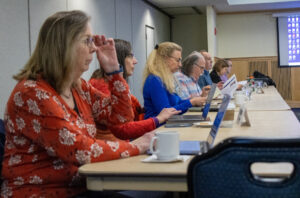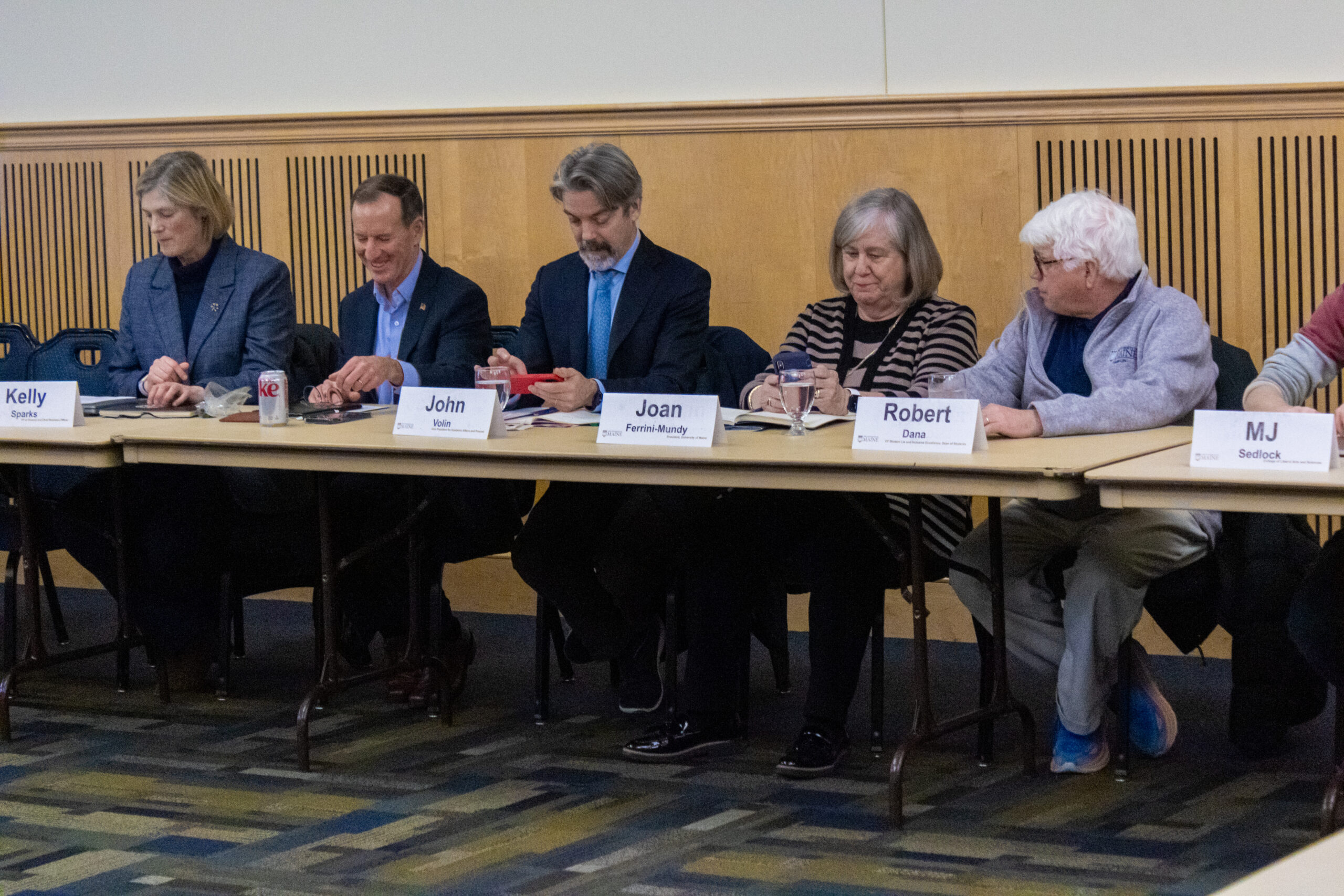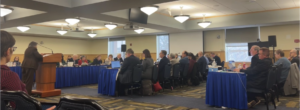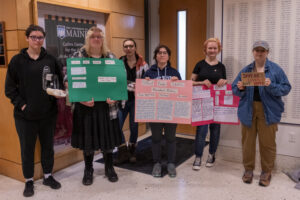The University of Maine Faculty Senate convened on March 3 to discuss campus visions and policy priorities for upcoming years before hearing directly from professors on the administration’s intention to expand remote course availability.
The Vice Chancellor for Academic and Student Affairs, Dr. Jeffrey St. John, revealed recent developments highlighting UMaine’s strides to enhance institutional excellence across disciplines. Six weeks ago, the Augusta, Machias and Presque-Isle campuses finalized a cooperating department in special education, which established three small programs to support students pursuing careers in this field.
The Orono, Machias and Fort Kent campuses have partnered to produce the Black Bear Advantage (BBA) agreement, which facilitates comprehensive pathway programs for students enrolled in the state community colleges.
Recruiters can contact qualified community college students to offer full admission, provided they meet all pre-requisite requirements for the prospective UMS four-year programs. The administration announced that the BBA was officially signed two weeks ago.
The Faculty Senate unanimously approved a motion granting two constitutional amendments, increasing the number of pursuable one-year terms for the presidency and vice presidency from two to three consecutive terms and, secondly, allowing the secretary to serve three total durations.
While most members shared a consensus for promoting continuity of knowledge and experience within these leadership positions, the motion awaits a pending affirmative vote from the entire Faculty Senate membership since it requires changing current bylaws. Elections will be held in April to determine the next president, vice president, secretary, board of trustees representative and faculty governance representative for the Faculty Senate.
Vice Chancellor Dr. Jeffrey St. John introduced a motion to adopt generative artificial intelligence guidelines for improving teaching and learning objectives, which passed the Faculty Senate without opposing votes.
“The depth of the work, the community of practice, and the guidance developed are best in class within our system and probably our state right now,” St. John said, referencing generative AI pursuits at the university level.
Addressing the system-wide contract with Zoom, which ends on June 30, 2025, St. John said the Education Technology and Advisory Council members are responsible for conceptualizing criteria for reviewing senators’ proposals to resume virtually in the post-pandemic atmosphere after three and a half years of recovery.
The Vice-Chancellor added that the decision-making revolving around the renewal of Zoom after the contract’s expiration will not transpire “under total darkness” and pledged full transparency to the public throughout the unfolding process.
Dr. Hannah Carter, the associate provost for online education and dean of cooperative extension, applauded the critical platform presence of online offerings, which conveniently allow students, especially seniors, to complete all degree and certification requirements.
“We do look at areas of high need and communicate those with the Deans and the Associate Deans,” Carter said, citing consistent efforts to meet student expectations by expanding online opportunities.
The University has received over $30 million in revenue from the 61 virtually available programs over the last thirty years.

Several professors vocalized the challenges accumulated over time from teaching additional virtual courses with limited adjunct faculty in departments.
“As program coordinator, in 2020, I had six full-time faculty literacy. As of 2024-25, there will be two. We currently have a Ph.D. program with around 1,113 students. We serve undergraduates and teach courses in early childhood, elementary, and secondary education. I need an adjunct. My head is about to explode,” one professor revealed.
Another professor echoed similar faculty-fallback concerns about the administration’s policies to increase the scope of online courses across programs: “It’s just getting impossible. If you want us to expand online teaching, make it easier. We can’t keep doing everything.” The individual also mentioned sacrificing personal research objectives during the summers to fill in for faculty retirements and ensure that students productively progress through their degree requirements without barriers.
The administration responded that there are over 20 ongoing searches for faculty additions to alleviate existing departmental vacancies.
President Joan Ferrini-Mundy clarified the administration’s future policy priorities. “We are trying to completely transform the plane as we fly it. We will most likely need to look at sunsetting programs. The other fact is students need to be at the center of our discussions- what we’re doing for them, what we know they want– the more we can all infuse that in, the better,” concluded Ferrini-Mundy.
Dedicated to advancing the academic mission of the University of Maine, the Faculty Senate represents faculty members in formulating and implementing policies fostering innovation, public service, and cooperative extension to “address the complex challenges and opportunities of the 21st Century through research-based knowledge,” according to the UMS mission statement.













